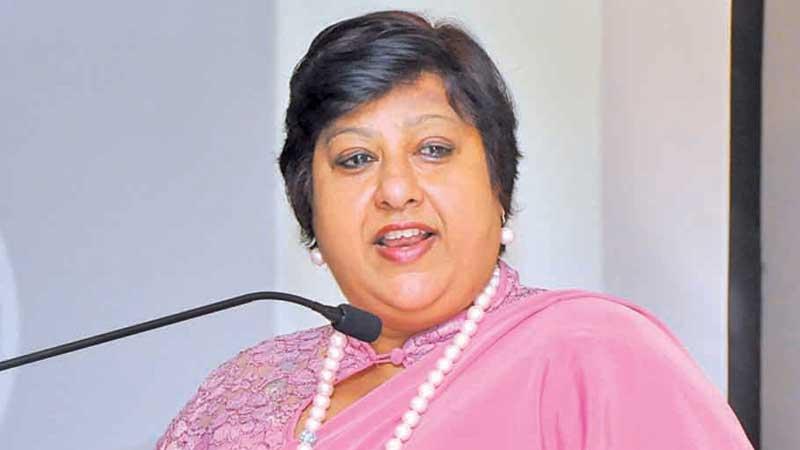
Public officials must make declarations on their outside activities, employment, investments, assets, gifts or benefits where a conflict of interest may result in the process, Solicitor General Dilrukshi Wickramasinghe told a forum on ‘Ethical Responsibility of Professional Accountants in the Public Sector’.
It was organised by the Association of Public Finance Accountants of Sri Lanka (APFASL), the public sector wing of the Institute of Chartered Accountants of Sri Lanka in Colombo last week.
She said the threshold value for a gift that could be accepted is up to Rs.5,000 unless a public official discloses it to the Ministry of Foreign Affairs.
“Adherence to the National Procurement Guidelines must come from the heart of public servants. Every time they sign a cheque it’s their duty to read the procurement guidelines. Public officials must check before signing whether it is according to the particular project. The Swiss Challenge, although the Cabinet decided that it should be abolished, is important to prevent entertaining unsolicited proposals. If public officials have not followed it they will be accountable by signing those cheques.
“The citizens who have delegated powers to public servants have the right to know what public officials do with it. Therefore, it is mandatory that public servants justify the payments they make and that all laws are complied. It is the right of public servants at all times to say no to make payments when it is wrong. It is not difficult to say no,” Wickramasinghe said.
She said after 20 years the country has managed to introduce the Right to Information Act which has transformed the way people think and public servants must disclose information. Public officials must adhere to the principles of accountability, integrity and transparency.
“It is the duty of public servants to ensure that documents are in accordance with the law. If a public official is pressured by the boss or by a politician he or she must ensure to make a note in the file to protect himself and send it up in a cover so that the official who goes through it will know that there is something that has not been complied with,” Wickramasinghe said adding that in case of difficulty the public sector accountant could inform the Bribery Commission by submitting documents anonymously.
She said the 19A has granted power to the Bribery Commission to accept documents anonymously but the public servant must have the guts to do that. ‘Earlier people feared what will happen to their jobs if they divulge information regarding bribery and corruption. Now there are sufficient safeguards inbuilt through the 19A.
Public sector accountants are trustees of public property and have great responsibility to be whistle blowers and be the first investigators to put the first stop to all irregularities to bribery and corruption.
“Very often we pass the responsibility of auditing to auditors saying it is their duty to audit. Public accountants must play this role and be whistle blowers and investigators,” she said adding that conflict of interest automatically becomes an offence when one does not disclose. Three to four years ago, a military official did not disclose an important tender involving his son-in-law. One must step out from that decision making process enabling someone else to take that decision.
“Potential conflict of interests, is a conflict of interest that could take place in the future which is not perceived at the present moment. I cannot emphasise more the importance of avoiding conflict of interests by public accountants,” Wickramasinghe said stressing that the role of public servants is not simply doing the task entrusted to him but doing everything in trust not only for the present generation but also for future generations. Needless to say all procurement and public finance must be in the ambit of public finance guidelines.
She said there are local and international guidelines such as the United Nations Convention Against Corruption (UNCAC) of which Article 5 (I) states:
each State Party shall, in accordance with the fundamental principles of its legal system, develop and implement or maintain effective, coordinated anti-corruption policies that promote the participation of society and reflect the principles of the rule of law, proper management of public affairs and public property, integrity, transparency and accountability.
